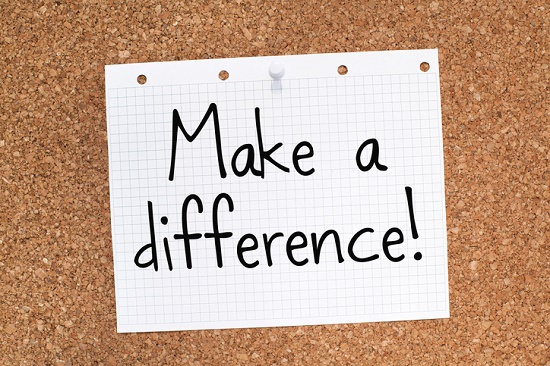
If you already use hearing aids, you’ve already beat the odds.
In the United States, roughly 48 million people have hearing loss, of which 28.8 million could benefit from utilizing hearing aids.
However, of those age 70 and older, only 30 percent of those who could benefit from hearing aids actually use them. For those age 20 to 69, it’s only 16 percent.
That’s millions of Americans that are losing out on the rewards of better hearing—advantages you understand first-hand if you use hearing aids yourself or know someone who does.
So what can you do to boost awareness about the benefits of hearing aids and the enhancements to the quality of life they produce?
Below are 10 ways to become a hearing health advocate.
1. Talk about hearing loss on social media
Social media is a simple and effective way to spread the message regarding the benefits of healthier hearing. Tell people about how hearing aids work, and how they’ve personally improved your life or the life of someone you know.
While people are typically skeptical of advertising, they’ll always be receptive to personal stories.
2. Volunteer to help those in need
Participate in a local event like the Hearing Loss Association of America’s Walk4Hearing event, or organize your own to increase awareness or money for hearing loss.
Get in contact with your local hearing loss chapter and discover ways you can assist in the community. Check out the Hearing Loss Association of America to find a local chapter.
3. Donate your old hearing aids
If you’re set to upgrade your hearing aids to a newer model, look into donating your old hearing aids to a local organization or hearing clinic.
Your donated hearing aids can be renovated and supplied to those who couldn’t otherwise pay for them.
4. Contribute to hearing health organizations
Consider contributing to an organization that provides support the deaf and hard-of-hearing community, such as the Hearing Health Foundation, Hearing Charities of America, or a local organization.
These establishments use the contributions to finance research, to deliver education and support, and to offer financial help to those who can’t pay for hearing aids or cochlear implants.
5. Start a petition
Most states do not mandate health insurance plans to help cover the expense of hearing aids. Start a petition to deliver to your elected officials, asking them to recognize hearing health as a critical aspect of general health.
6. Help someone with hearing loss
Many people believe the myth that hearing aids don’t work, or they may even be denying they have a problem in the first place.
Help people to recognize and accept their hearing loss and understand that the technological innovations in hearing aids can help them recover their hearing. Help guide them through the steps of finding a provider, getting a hearing test, and adjusting to their hearing aids.
7. Advocate for the community
Hearing loop systems deliver sound directly from the sound source to the individual’s hearing aids. These are found in churches, movie theaters, auditoriums, and universities.
Advocate for the addition of hearing loop systems in the most widely used community locations.
8. Use hearing protection
Among the most effective ways to advocate for hearing health is by being a hearing health role model. That means safeguarding your hearing at loud settings, like at rock concerts or sporting events, with customized hearing protection.
9. Get your hearing evaluated
If you don’t already wear hearing aids, display your devotion to hearing health by getting your hearing professionally tested. Share the process on social media and suggests that other people do the same.
10. Wear your hearing aids with pride
Last, you can do your part to end the stigma of hearing loss by proudly wearing your hearing aids. Hearing loss is widespread, just like vision loss, and wearing hearing aids should be as typical and acceptable as wearing a pair of prescription glasses.
